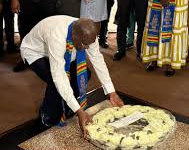
The Institute of Economic Affairs (IEA) has called for a pragmatic approach rather than an ideological approach to resolve the problem of high inflation which has become a perennial national problem.
It suggested a strong collaborative effort between the government and the Bank of Ghana to address the issue.
Proposing a new approach to address the rising inflation which hit 27.6 per cent in May 2022, the economic think tank, said the government should consider eliminating or reducing numerous fuel taxes and levies, among other measures.
Speaking at a roundtable discussion on “Rethinking Inflation Management in Ghana”, Director of Research, Dr John Kwakye, said the government must act with BoG to mitigate the effects of major drivers, which, according to inflation figures, include food, fuel and transport.
“Indeed, GSS has been at pains to point out main sources of Ghana’s inflation, with a view to guiding policymakers in taking appropriate remedial measures. For food, this is time to release some of reserves in the Bulk Strategic Stock, if any, to augment supplies Government should also access ECOWAS strategic stock, if available, to supplement domestic supply,” he pointed out.
Further, it said “government should provide temporary subsidy for staples like maize, rice and bread to ease the burden on low-income consumers. Even IMF, which is known not to be a fan of subsidies, has called on Governments to provide food subsidies to cushion effects of high prices on their citizens”.
Again, it noted that “for fuel, the government should use some of its windfall earnings from higher oil prices of about $120 as against the budget estimates of about $60 to cushion domestic pump prices. This is time to activate the Energy Sector Stabilisation Levy Act (ESLA), meant to accumulate tax funds to cushion future shocks. The government should also reduce some of the numerous fuel taxes and levies.”
Inflation trends and causes
Ghana has history of high inflation compared to peers in Africa and elsewhere.
In the 1980s and 1990s, inflation was in high double digits.
Over the last 20 years, however, inflation declined significantly along with improvement in general macroeconomic performance.
Empirical literature identifies fiscal policy, food and exchange rate as key drivers of Ghana’s inflation.
On stabilising the cedi, the IEA said the way to stabilise the exchange rate on a durable basis is to close the supply and demand gap.
According to Dr Kwakye, it required fully leveraging capacities and opportunities for earning foreign exchange, including by increasing and diversifying exports and increasing earnings from natural resources by taking greater control of them.
It called for aggressive promotion of the production of import substitutes domestically through industrialisation so as to curtail demand for imports and foreign exchange.







